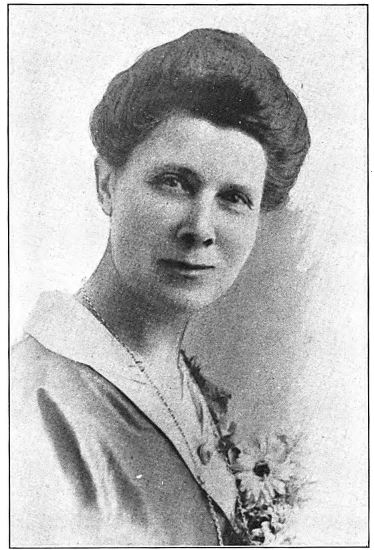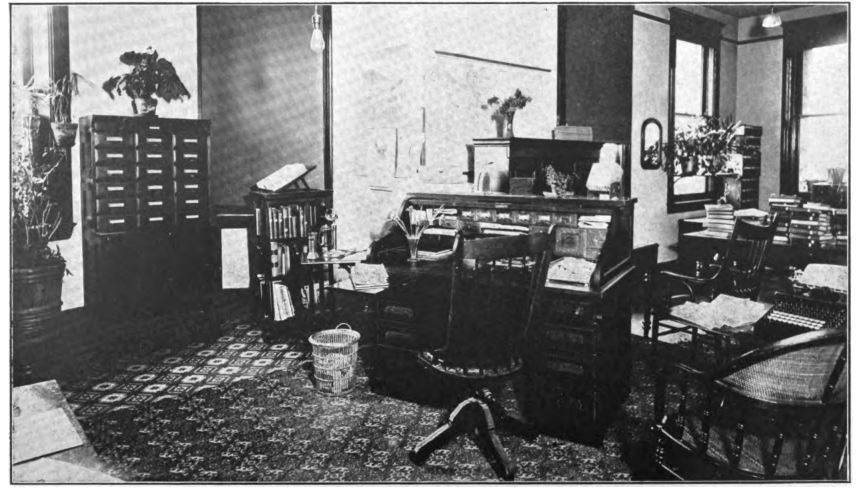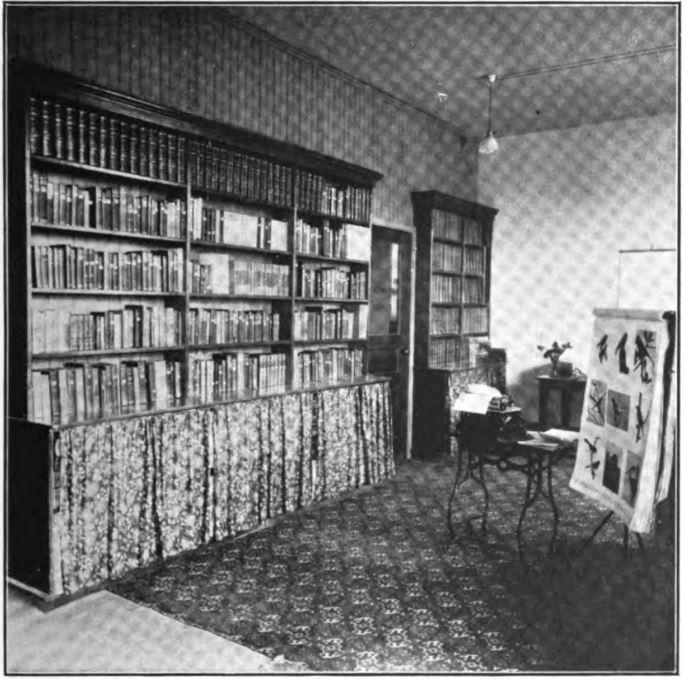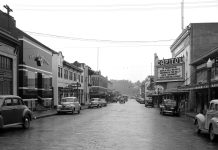At the turn of the century, public libraries were few and far between in Washington. Helping bring books to the most isolated parts of the state was Louella Diven, superintendent of the Washington State Traveling Library.
Louella Diven History
Louella “Lou” Getrude was born to William and Jane Lockhart Sams on November 25, 1858, in Kentucky where her father operated a sawmill. Her large family moved around a bit, farming in Missouri before returning to Kentucky where she became a schoolteacher.
On December 11, 1883, Louella, then living in Independence, Missouri, married Clarence Diven (1854-1900). In 1890 the couple moved to Olympia, where he became minister of the First Congregational Church. Their only child, Mary Katherine, was born in Olympia in 1891.
Lou was active with her church and community. But facing money problems, the family reluctantly left for the East Coast. They stayed in Boston before he took a job as minister at the Unity Church, a Unitarian church, in St. Paul, Minnesota in 1898.
Clarence passed away on January 18, 1900. Lou returned to Olympia in 1902. She and Mary lived in the Gresl Flats apartments on Jefferson Street before moving to 1817 Water Street.
In 1904, Lou joined the faculty of People’s University, an independent college in Olympia. She taught vocal music. In May 1905, however, she had to resign because of ill health. The school closed the next year.

Washington State Traveling Library
But 1906 brought a new phase of life, when Lou was appointed superintendent of the Washington State Traveling Library. As an assistant in the Washington State Library, she had technically been in charge of it since 1905.
The Washington State Traveling Library was established in 1901, when the Washington State Library took over the Washington State General Federation of Women’s Clubs’ traveling library. In 1906, the operation was put under the supervision of the Washington State Library Commission, making it virtually independent. This caused some jealousy. Former State Librarian Maryan Reynolds noted in “Dynamics of Change: A History of the Washington State Library,” that Lou was able to get more money from the state legislature than the principal institution could.
Lou still struggled with a tight budget, often advertising for used magazine donations. But under her management, the library expanded from cases of books sent out as library sets to an organization that could handle requests for both individual books and books grouped by subject. Items were shipped by parcel post.
The library handled thousands of applications per year, loaning out tens of thousands of books. The goal of the library was to reach remote places that could not practically access public libraries or afford books. “The workers in the railroad and logging camps read deeper books on average than the ordinary city folks,” she told reporters in 1914, “who read mostly the popular fiction.” Groups or individuals could request books.
Libraries and books were put in granges, barber shops, post offices, churches, schools and anywhere they could be accessed, even private homes. A Mrs. Woodfort lived on a farm in eastern Washington. Her nearest neighbor was four miles away and her husband was out working all day. Isolated, she sent crochet to Lou to sell to pay for postage. Lou did just that. Woodfort even began loaning books out to neighbors.

Lou Diven: Olympia Community Woman
As a librarian, Louella Diven was considered an expert on many topics and invited to speak on topics ranging from birds to the psychology of children. She toured the state talking about her library and helping set up library stations. She addressed everybody from PTA meetings to teacher institutes.
Besides her work at the library, she was active with community organizations such as the WCTU and First Congregational Church’s Euterpean Society. An amateur writer, she published poems and short stories.
Lou’s position made her a respected woman of education and culture. She was active in many local clubs, especially the Eenati Club, a women’s educational society, even serving as president.
Lou also took a group of Olympia ladies on a tour of Europe in 1910! She lectured often about her travels.
She was a suffragist. Lou had not been originally, but studying the conditions of women in other countries had convinced her, she told the Olympia Equal Suffrage Club when it formed in 1909. She was their vice president and the group sometimes met in her home.

Traveling Library Changes and Louella Diven’s Legacy
The Traveling Library was located in the basement of the Old State Capitol for a time, before relocating to the Martin Building. They moved back to the basement in 1921 to save the state rent, but with bad lighting and poor ventilation, Lou called it the last place you would put a library.
Lou had many health problems. Mary, who had helped with the library often before, actually took charge of the library in 1921 when her mother was sick. Lou worked until the end, holding the position for 17 years, passing away August 3, 1923.
The State Traveling Library did not outlive her long. Budget conscious Governor Roland Hartley vetoed out the Traveling Library’s budget in 1929. The books were recalled. Despite protests, the traveling library’s days were over. The Washington State Library continues Louella Diven’s legacy today with its many programs, includes Institutional Library Services and the Talking Book and Braille Library.




















































